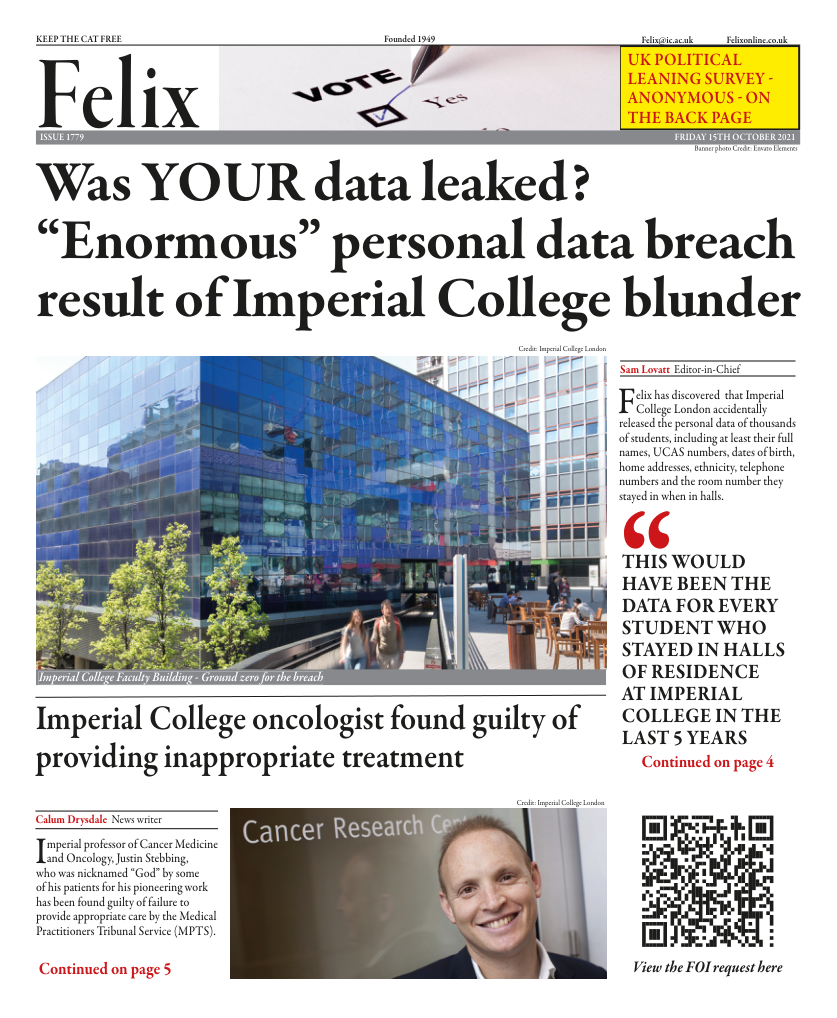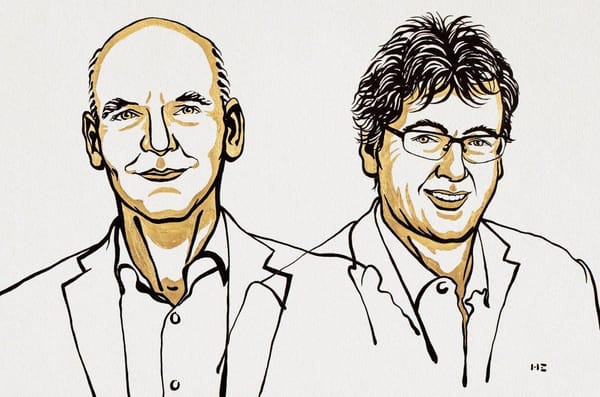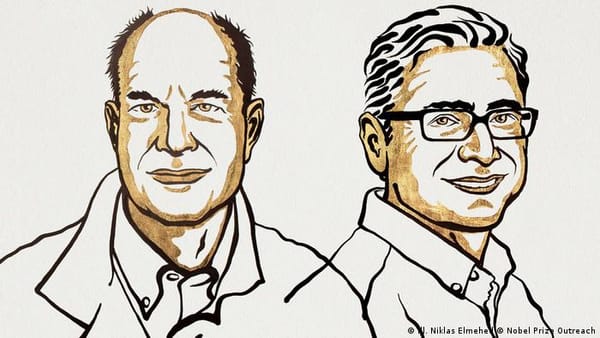Against rationality
Science writer Leo Zhang explores the 1975 science philosophy book, “Against Method”, by Paul Feyerabend
In coming to Imperial, the only UK university to focus specifically on science, engineering, medicine and business, our relationship to science is probably quite secure. But throughout our formal education in science, one area which remains curiously under-emphasised is the constraints and validity of scientific knowledge.
Washed up on the shores of received knowledge, the conception of science most of us have loosely can be described as scientific materialism – a position traceable to the philosophers and scientists of the early 20th century Vienna Circle. It takes only statements, verifiable by empirical observation or logical proof, to be capable of containing factual information about our reality - myth, mystery and religion melt into air, under the white heat of the scientific method. The endpoint of which aims to unite the threads of the universe into a grand tapestry of a universal theory of everything, under the auspices of scientifically verifiable fact, as heralded by Hawking and Krauss in all good bookshops.
The sixties ushered in more radical currents of thought into the philosophy of science, catching the contemporary movements of revolution and insurgency in the air, notably Kuhn’s “The Structure of Scientific Revolutions”, which attacked the abstractions of science as a process of continuous evolution towards truth. Paul Feyerabend (1924-1994), a philosopher of science not known for mincing his words, launched his critique in this vein.
Born in Vienna, he had an unconventional path to philosophy- originally studying theatre and stage-management after serving in WW2, switching to physics from history and sociology at university, and finally transferring into philosophy to leave with his doctorate. His subsequent trajectory, after settling down to a career in philosophy, wasn’t any less idiosyncratic. His thought charted a path from the po-faced logical positivists, through Popperian ideals and into a championing of an “anarchist” theory of science. His most famous work Against Method (1975) is a biting expression of this mature radicalism.
In direct repudiation of his earlier work, in it he sought to debase the dogmatic view that the scientific method was the key engine driving scientific progress- calling into question Science’s authority over knowledge (now often taken as a sovereign fact). If scientific knowledge wasn’t legislated for by methodology but instead was a melange of contingent factors, purposeful omissions and rhetoric, what separates Science from dreaded metaphysics?
Through the book, Feyerabend revels in uncovering this whitewashed history. He exacerbates, highlights and brings into unresolvable tension fundamental disparities between theory and historical practice. Our image of scientific activity is fixed along certain methodological lines: viable theories should match empirical evidence and new theories should be consistent with established theory.
Feyerabend raises the simple objection that no theory every fully corresponds to all the “facts” in its domain. Our point of acceptance creates the entrance of intersubjectivity. Nor are the “facts” ever neutral objects. They are inextricably tangled up in history and as a product of the diverse events and scientists that produced them, they are irreducibly heterogeneous with ancient assumptions embedded alongside orthodox science. It is a mistake to think that they refer to some objective state of affairs.
Thus it is unfair to judge new theories by the status quo. They lack the apparatus of the established. It is only after we build up relevant auxiliary sciences and new idioms do we have grounds for a fair comparison - as Feyerabend put it: “theories become clear and ‘reasonable’ only after incoherent parts have been used for a long time”. It is in this way, he points out, that each theory creates experience anew. To accommodate it we have to irrecoverably alter the sensory and conceptual core of experience to allow for “new facts” to legitimise our theory (“approximations are made, known affects are omitted, different conceptual lines are drawn”). To form and defend them requires a belief akin to religious faith: Newton himself had to resort to “divine intervention” to account for the Solar System’s stability under his theory of gravitation (and to spread them requires a sort of “propaganda”).
Without this recourse to external, inconsistent measures, theories and ridiculous ideas, we are unable to break away from the presuppositions of established theory latent in all empirical evidence gathered under such institutions. Through historical examples employed throughout, Feyerabend shows us, in applying our standards retroactively, we would deny our sciences of the theories of Galileo, Newton, Bohr etc. Feyerabend’s infamous answer to our initial question is then a blithe: nothing, “anything goes”.
All of this probably rattles against your own beliefs. It’s hard to recognise what remains, in Feyerabend’s dissection of science, of what drew us to study science in the first place. His proclivity to provoke does nothing to settle our ship either. But from under the fire that Feyerabend lights at our feet, he pushes us towards the limits of what we call “rationality”: a logic which has legislated and justified the worst excesses of Western “civilising” influence. To subject Science to insuperable rules derived by “reason” would be to nullify Science, this is the problem Feyerabend sought to address! He believed the same to be true with economics, culture and all of humanity’s endeavours. Under the growing encroachment of neoliberalism and technologism, inscribing more and more of our horizons and possibilities with their “rationality”, and the spectre of ecological collapse in the closing distance, it remains a pertinent concern for our age.








